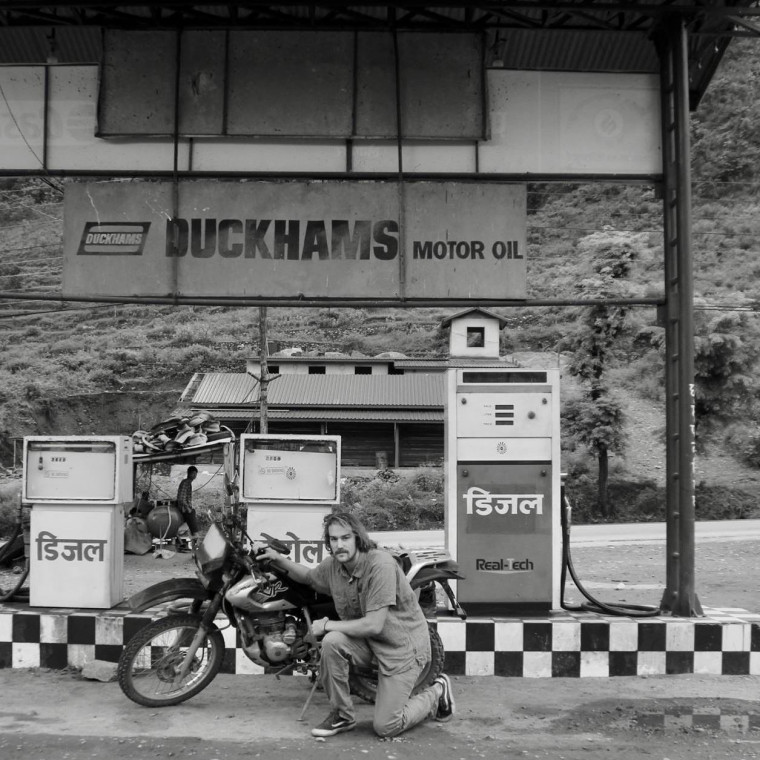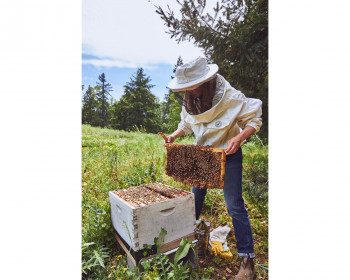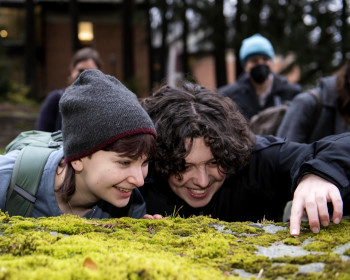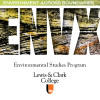From Places to Peopled Places
Open gallery

I believe my story is similar to many others who chose to explore Environmental Studies at Lewis and Clark. Reflecting on my upbringing in the outdoors brings me back to cold, red-cheeked Colorado winters and summers spent around talus fields, obscure to anyone not steeped in the culture of rock climbing. When I arrived at college I wanted to explore the ways in which the wilderness we enjoy is protected, created, and thought about. While it was the landscapes I initially fell in love with, I found what I ended up doing had much more to do with the people who lived there.
My path through ENVS allowed me to do surveying and qualitative research in Swaziland, where we also took buses across the country, listened to amazing music, and explored a seemingly endless backdrop of rolling hills and granite protrusions. While at LC, I was also lucky enough to receive a grant to study sacred landscapes and their contribution to social and ecological wellbeing in Pharping, Nepal. There, I lived in a monastery and did interviews with monks, rinpoches (“chosen ones”), pilgrims, ex-pats, tourists, and government officials to learn about the underlying inequity that accompanies the creation of a sacred landscape. I wrote my undergraduate thesis about this powerful experience.
After graduating from Lewis and Clark, I worked a million odd-jobs, lived in my car in Northern Mexico to rock climb, spent time with my family, and made it back to Nepal. I had always wanted to live on the road and accept the experiences that accompanied it. After some time, I found that I was feeling a certain academic inquiry missing from my traveling. This urge pulled me back to Nepal, where everything, especially urban life was utterly fascinating to me. Nepal is an amalgam of stories, histories, and myths, swirling around one another. Past and present, sacred and profane, safety and danger, all wafting in and out of each other, coexisting in relationships that are at once conflicting and harmonious.
In 2017 I began my Master’s coursework at the University of Hawaii perusing a degree in medical anthropology. While anthropology had snatched my academic heart from ENVS, the skills of inquiry and the ability to think systemically, critically, and at multiple scales continues to be one of my biggest assets. I returned to Nepal on a four-month research trip where I developed my proficiency in Nepali and worked on issues surrounding urban Nepal’s developing opioid issue. I worked with a psychiatrist at Tribhuvan University (TU) to contact ex-patients of rehab clinics, who had been tortured, abused, and extorted in the name of health. I also toured the facilities where these abuses were taking place. Conducting interviews about torture and violence has been one of the most saddening and challenging experiences of my life. I have struggled immensely to make sense of it as a scholar and a human being. TU psychiatrist Dr. Pant and I are working together on a paper discussing the history of drug use and treatment in Nepal.
I now work for the University of Hawaii Department of Psychiatry, where we do research on how to better assist youth living with mental illness, in houseless situations, involved in juvenile justice, and involved in foster and kinship care with substance use needs. It is not easy work but it allows me to have a small impact in bettering the lives of others. Living in Hawaii has also been an amazing reflection about my place in the world and where I fit in liberation movements as a white male.
I suppose to sum up the role ENVS has had in this story: ENVS allowed me to take an issue I was very emotionally involved in -ecological destruction- and transform that emotion into actionable thinking. It allowed me to go beyond blame and toward an accounting of people, places, and the parts of life that are dear to us and provided some of the tools needed to nurture those things. I hope it will do the same for you.
More Environmental Studies Stories
Environmental Studies is located in room 343A of John R. Howard Hall on the Undergraduate Campus.
MSC: 62
email envs@lclark.edu
voice 503-768-7790
fax 503-768-7620
Symposium Advisor Jessica Kleiss
Environmental Studies
Lewis & Clark
615 S. Palatine Hill Road MSC 62
Portland OR 97219


